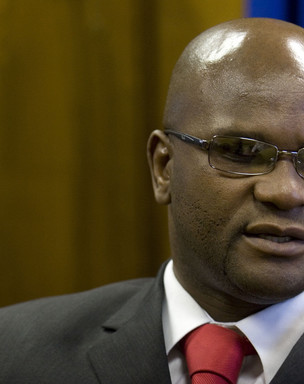The presence of Nathi Mthethwa was not felt when South Africa faced one of its biggest crises this year. Following the police`s tragic massacre of 34 miners in Marikana, the country appeared rudderless. And it felt that way again when violent labour unrest flared among farm workers in the Western Cape, drawing eerie parallels with the mining strikes.
The appointment of Riah Phiyega as national police commissioner did little to restore public faith in the police, because President Jacob Zuma appointed yet another civilian after dismissing Bheki Cele.
With protests on the increase around the country, Mthethwa should have moved to reintroduce the disbanded public order policing units that are trained to deal with unrest.
Police accountability under his watch has fallen to an all-time low and claims of police torture of suspects in custody are on the rise.
Mthethwa lost credibility when he retained crime intelligence head Richard Mdluli instead of heeding calls to suspend him while he faced serious allegations of murder and looting from his unit.
The minister seems to have no appetite for open and transparent policing. When Mthethwa and other police top brass gathered in Parliament to release South Africa`s crime statistics for 2011-2012 and revealed a 3.1% decrease in murder, the credibility of the figures was questioned.
Even if the figures are to be believed, with 15 609 murders from April 1 last year to May 31 this year, the murder rate is still one of the highest in the world.
To cap it all, Mthethwa pulled a political stunt when he went to court to force the commission of inquiry into policing in Khayelitsha to come to a halt just as it was about to start its public hearings. Social activists say the breakdown in trust between the police and community led to a rise in vigilante killings in Khayelitsha. Yet vigilantism is not restricted to Khayelitsha and Mthethwa should not have tried to downplay the rule-of-mob law, or the reason it is prevalent in crime-ridden townships.

